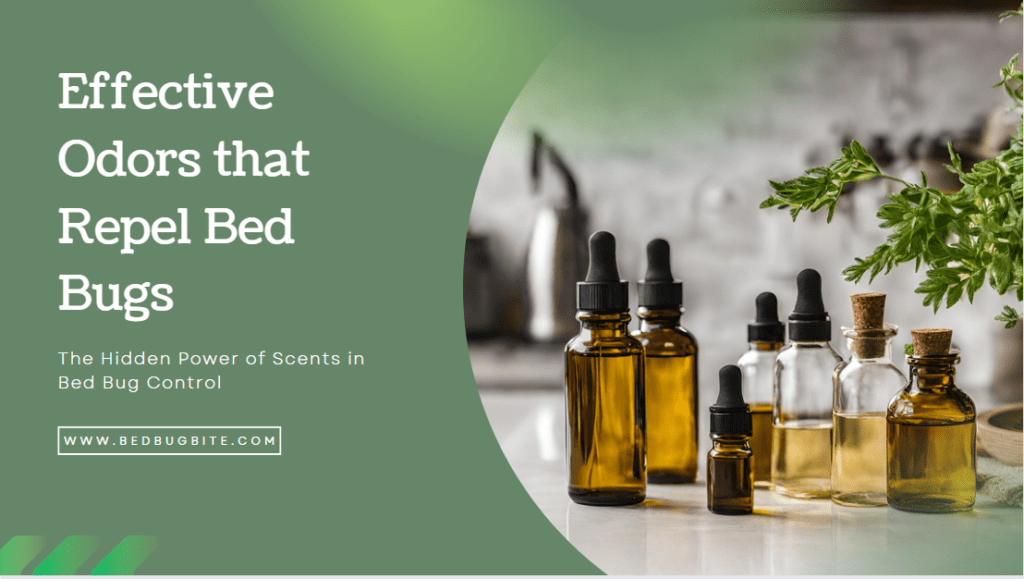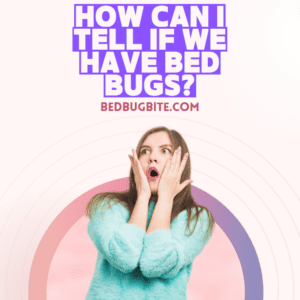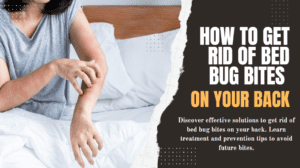The Hidden Power of Scents in Bed Bug Control
Effective Odors that Repel Bed Bugs. Bed bugs, notorious for their resilience and rapid spread, remain a significant concern in households worldwide. Often, chemical solutions and professional extermination are the go-to strategies for tackling these pests. However, an emerging and intriguing approach lies in the realm of scents. In this article, we delve into the hidden power of specific odors that could potentially deter these unwelcome guests. From essential oils to everyday household items, the range of scents discussed here offers both effectiveness and practicality, presenting a less invasive, more natural method of bed bug control. …Read more interesting Bed Bug Articles Here!
Understanding bed bug behavior is crucial in combating them effectively. Research shows that these tiny critters, though lacking a keen sense of sight, possess a highly developed olfactory system. Allowing them to detect blood sources and navigate their environment with precision. By leveraging this sensory dependency, certain odors can disrupt their normal activity and deter them from inhabiting spaces. For instance, a study by Rutgers University highlights the efficacy of certain essential oils in repelling bed bugs, offering a scientifically backed perspective on this natural approach.
Effective Odors that Repel Bed Bugs
In the following sections, we will explore a variety of odors known for their bed bug-repellent properties, including essential oils like lavender and peppermint, and everyday items like dryer sheets and rubbing alcohol. Each section not only details the specific scent’s effectiveness but also provides practical tips for integrating these odors into your daily routine. Creating an environment less hospitable to bed bugs.
By the end of this guide, you’ll have a comprehensive understanding of how these scents work against bed bugs and how you can use them to your advantage, potentially reducing your reliance on chemical treatments. So, let’s embark on this aromatic journey and discover the power of scents in keeping bed bugs at bay.
[Read more about the Rutgers University study on essential oils and bed bugs]
Understanding Bed Bugs: Habits and Sensitivities
The battle against bed bugs becomes more manageable when we grasp their unique habits and sensitivities. These tiny, nocturnal pests primarily feed on human blood, and their ability to survive in various environments makes them formidable household invaders. Understanding their behavior patterns and sensory strengths is key to deploying effective control strategies. Effective Odors that Repel Bed Bugs
Basic Biology of Bed Bugs
Bed bugs are small, wingless insects that belong to the family Cimicidae. Adult bed bugs are about the size of an apple seed, with a flat, oval-shaped body that becomes swollen and reddish after feeding. They thrive in close proximity to their human hosts, typically hiding in mattresses, bed frames, and other furniture during the day. Their life cycle includes several stages: from eggs to nymphs, and finally, to mature adults. This lifecycle knowledge is essential for understanding and disrupting their breeding and feeding habits.
How Bed Bugs Use Their Sense of Smell
A crucial aspect of bed bug behavior is their reliance on olfactory cues. They utilize their highly developed sense of smell to locate hosts and navigate their environment. Bed bugs can detect carbon dioxide and body heat emitted by humans, which guides them to their feeding sources. Their olfactory prowess also enables them to communicate with each other through pheromones. Which play a significant role in their social behavior, especially concerning mating and aggregation.
The Impact of Odors on Bed Bug Behavior
The sensitivity of bed bugs to various odors is not just a survival tool but a potential weakness that can be exploited. Certain scents, particularly those from essential oils and other natural sources, can disrupt their normal behavior. These odors can mask the chemical signals they rely on, leading to confusion and disorientation. This disruption can deter bed bugs from their usual feeding patterns and potentially drive them away from their established habitats.
In the next sections, we will explore specific odors that have been found effective against bed bugs. Examining how these scents can be integrated into your pest control strategy. Effective Odors that Repel Bed Bugs
Essential Oils: Nature’s Bed Bug Repellents
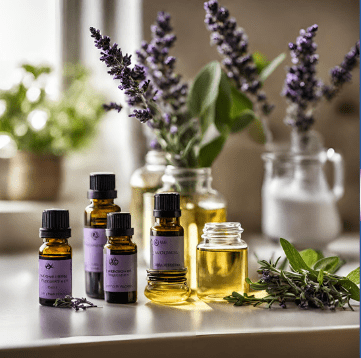
In the quest to find natural and effective solutions to bed bug infestations, essential oils emerge as a promising ally. These concentrated plant extracts, known for their potent aromatic properties, have been shown to possess qualities that can deter bed bugs. This section explores several essential oils that have gained recognition for their repellent capabilities. Offering a greener, more pleasant alternative to conventional chemical treatments.
Lavender: A Calming Scent with Potent Effects
Lavender, widely acclaimed for its calming and therapeutic properties, also demonstrates significant efficacy in repelling bed bugs. Its strong scent is believed to interfere with the bed bugs’ olfactory system, making it harder for them to locate their human hosts. Integrating lavender oil into your daily routine, through diffusers or spritzing diluted solutions on bedding, can create an environment less inviting to these pests.
Peppermint: More Than a Fresh Fragrance
Peppermint oil, with its intense and refreshing aroma, serves as more than just an air freshener. It’s been observed to repel bed bugs effectively, owing to its strong menthol content. When applied in diluted form around potential bed bug entry points or resting areas, peppermint oil can act as a barrier, preventing bed bugs from settling in.
Tea Tree Oil: A Potent and Versatile Repellent
Tea tree oil is renowned for its antimicrobial properties, but its role in pest control is equally noteworthy. Its strong, distinctive smell is unappealing to bed bugs, making it an effective deterrent. Regular use of tea tree oil, either in a diffuser or as a diluted spray, can help in keeping these unwanted guests at bay.
Eucalyptus: Refreshing and Effective
Eucalyptus oil, known for its crisp, clean scent, also packs a punch against bed bugs. Its natural components are said to be unpleasant to these insects, disrupting their normal behavior and deterring them from inhabited areas. Incorporating eucalyptus oil into household cleaning routines can serve as an additional layer of defense against bed bug infestations.
Each of these essential oils offers a unique approach to bed bug control, combining efficacy with an environmentally friendly profile. In the following section, we’ll examine how common household items can unexpectedly contribute to keeping bed bugs away, further enriching your arsenal against these persistent pests. Effective Odors that Repel Bed Bugs
Household Items: Unexpected Bed Bug Deterrents
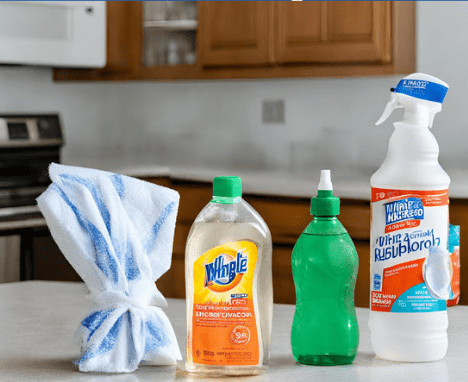
While essential oils are widely recognized for their repellent properties against bed bugs, various common household items also offer surprising efficacy in this battle. These everyday products, often overlooked, can be powerful tools in deterring bed bugs, providing a practical and accessible approach to pest control. This section explores some of these items, revealing their unexpected roles in keeping bed bugs at bay.
Dryer Sheets: A Surprising Ally
Dryer sheets, typically used to soften fabrics and reduce static cling, have been anecdotally noted to repel bed bugs. The specific chemicals and fragrances in dryer sheets are believed to be unattractive to bed bugs, making them a simple yet effective deterrent. Placing dryer sheets in drawers, closets, and under mattresses can create a less welcoming environment for these pests.
Rubbing Alcohol: More Than Just a Disinfectant
Rubbing alcohol, known for its disinfecting properties, can also play a role in controlling bed bug infestations. Its strong scent and chemical composition are thought to be repulsive to bed bugs. Spraying a diluted solution of rubbing alcohol around potential bed bug hideouts can help in keeping them away, while also disinfecting the area.
The Role of White Vinegar in Bed Bug Control
White vinegar, a staple in many households for cleaning and cooking, can also be effective against bed bugs. Its acetic acid content and pungent smell make it a natural bed bug repellent. Using a spray bottle to apply diluted white vinegar around affected areas can help deter bed bugs and can be a part of a comprehensive pest control strategy.
These household items, often readily available, offer a practical and cost-effective means of deterring bed bugs. Their ease of use and general safety make them suitable for regular application, adding an extra layer of defense in your home. In the next section, we will delve into strategies for using scents effectively, maximizing their potential in creating a bed bug-resistant environment. Effective Odors that Repel Bed Bugs
Creating an Anti-Bed Bug Environment
Establishing a living space that naturally repels bed bugs is a strategic approach to long-term pest control. It involves more than just occasional use of repellents; it’s about integrating specific scents and practices into your daily life. This section provides actionable strategies for using scents effectively, alongside tips for reinforcing these efforts, to create an environment that is inherently hostile to bed bugs.
Strategies for Using Scents Effectively
The key to using scents effectively against bed bugs lies in consistency and strategic placement. Essential oils and other odoriferous substances should be applied regularly and in areas where bed bugs are likely to inhabit or enter. Consider using diffusers to maintain a constant presence of these scents in your home. Additionally, incorporating these scents in cleaning routines can reinforce their repellent effect, making your environment less inviting to bed bugs over time.
Tips for Integrating Odors into Daily Routines
To make the most of these scent-based strategies, integrate them into your everyday routines. Add a few drops of essential oil to your laundry detergent, use scented dryer sheets, or regularly spray diluted solutions of vinegar or rubbing alcohol in potential bed bug hotspots. These practices not only help in repelling bed bugs but also contribute to a pleasant and fresh-smelling home environment.
Precautions and Best Practices
While using scents as a deterrent, it’s important to remember safety and best practices. Always dilute essential oils before use, as concentrated forms can be harmful to humans and pets. Test small areas first to ensure there’s no adverse reaction, particularly on fabrics and surfaces. Additionally, remember that while scents can be an effective part of bed bug control, they are most successful when combined with other pest management strategies, such as regular cleaning and professional inspections.
Creating an anti-bed bug environment is a proactive and holistic approach to pest control. By incorporating these scent-based strategies into your daily life and observing the necessary precautions, you can significantly reduce the likelihood of bed bug infestations, ensuring a more peaceful and pest-free living space.
Limitations and Considerations: The Truth About Odor-Based Repellents
While using odors as a tool against bed bugs offers a natural and appealing approach, it’s essential to understand their limitations and consider several key factors. This section delves into the effectiveness of odor-based repellents in various scenarios, outlines potential risks and safety concerns, and highlights the importance of integrating these methods with other bed bug control strategies.
Effectiveness in Different Scenarios
Odor-based repellents, though useful, may not always provide a standalone solution for bed bug infestations. Their efficacy can vary based on the severity of the infestation, the type of scent used, and the frequency of application. These repellents tend to be more effective as preventive measures or in conjunction with other pest control methods in cases of mild to moderate infestations. For severe infestations, professional intervention is often necessary.
Potential Risks and Safety Concerns
While natural, not all scents are safe for everyone. Essential oils, for instance, can cause allergic reactions or irritations in some individuals and pets. It’s crucial to use these products responsibly, following dilution guidelines and avoiding overuse. Additionally, some household items used as repellents, like rubbing alcohol, are flammable and should be handled with care. Always prioritize safety and consider potential health impacts when using any repellent.
Complementary Methods for Bed Bug Control
For comprehensive bed bug management, it’s advisable to combine scent-based repellents with other proven control methods. Regular cleaning, vacuuming, and decluttering can reduce bed bug hiding spots and breeding grounds. Encasements for mattresses and box springs can prevent bed bugs from establishing colonies in bedding. Furthermore, periodic professional inspections can identify and address infestations early, enhancing the overall effectiveness of your pest control strategy.
Understanding the strengths and limitations of odor-based repellents is crucial for effective bed bug control. By combining these methods with other strategies and observing safety precautions, you can create a more robust and effective approach to managing bed bug issues in your home.
Embracing a Multifaceted Approach
As we conclude our exploration of odors as a natural deterrent for bed bugs, it’s clear that while these methods hold promise, they are most effective when part of a broader, multifaceted pest control strategy. This final section recaps the key points discussed, emphasizing the importance of combining various methods for sustainable bed bug management, and leaves you with some closing thoughts on creating a more resilient living environment.
Recap of Key Points
We’ve journeyed through the world of essential oils and household items, uncovering their potential as natural repellents against bed bugs. From lavender’s calming effect to the surprising utility of dryer sheets, these methods offer an environmentally friendly and less invasive approach to pest control. However, it’s crucial to remember that these are just pieces of a larger puzzle. The real strength lies in integrating these scents with other effective bed bug control practices.
Combining Odor Strategies with Other Methods
To maximize the effectiveness of scent-based repellents, it’s essential to combine them with regular cleaning, decluttering, and physical barriers like mattress encasements. In cases of severe infestations, seeking professional help is advisable. Regular inspection and monitoring can also play a critical role in early detection and management of bed bug issues, preventing them from becoming larger problems.
Closing Thoughts on Sustainable Bed Bug Management
The fight against bed bugs is ongoing, and staying informed and proactive is key. By understanding and utilizing various methods, including natural scents, we can create a more hostile environment for bed bugs and a more comfortable one for ourselves. Remember, the best defense is a comprehensive one, blending natural remedies with traditional control techniques to keep your home bed bug-free.

